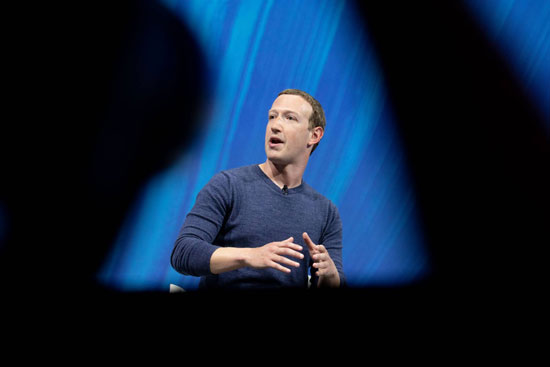有危機沒關系,能賺錢才是王道

|
危機?有危機嗎? 兩周前,Facebook發布了驚艷的第四季度和全年財務業績,而我的新同事丹妮爾·奧布里爾也對此進行了較為詳細的報道。公司的季度營收躍升了30%,達到了近170億美元,對于已然龐大的營收額來說,這一增速實在是驚人。公司的利潤飆升了61%,達到了近70億美元。Facebook擁有超過15億名用戶,同比增長9%。這一增幅再一次令人感到震驚,因為Facebook在發達國家市場已經達到飽和。同時,用戶增長地域的分布之廣也頗為令人側目。 Facebook的股價在盤后一路高歌。 有一點可以確定的是,有關Facebook的一些負面問題,例如左右選舉、煽動處決印度少數種族、無恥地出售其用戶的個人數據、對上述這些問題拖延敷衍,對于那些置身事外、以聊天族為主的群體,以及紐約、華盛頓和舊金山這樣的城市來說并非是什么大不了的事情。在現實世界,數千萬用戶依然熱衷于發布其精心策劃的生活照,與高中同學進行攀比,并觀看那些無厘頭視頻,但所有這些內容都無需耗費Facebook一分錢。 這對于首席執行官馬克·扎克伯格來說是一個絕妙的商業模式,他花重金聘請了內容管理者和說客,將其他問題一一清理掉,就像是這些商業問題在一開始就不存在一樣。 說起Facebook,我推薦大家讀一篇長文,由從不輕率膚淺、但下筆如有神的本·湯普森撰寫。他圍繞我在1月所撰寫的同一個問題發表了一篇文章。這個問題是:BuzzFeed和無數其他出版商錯誤地認為,Facebook將成為他們的衣食父母。在《BuzzFeed的教訓》一文中,湯普森做了一件在媒體界十分罕見的事情:他承認自己犯了錯。他像那些未能做出正確判斷的媒體高管一樣,認為Facebook可能會利用出版商的知識產權內容來吸引觀眾,然后分享由此帶來的經濟效益。然而,Facebook把好處都留給了自己,讓那些試圖利用Facebook平臺,以及銷售數字廣告的行為成為了笑話。 1月下旬,一篇生動的評論描述了行業的幼稚心理,該文出自一名被BuzzFeed解雇的作者。杰西卡·特斯塔對《紐約時報》說:“我們的作品一直以來都廣受好評,在行業內部和讀者中都是如此。我們改變了規則,獲得了獎項,而且也吸引了眾多流量。”關于自己和同事作品的質量,特斯塔毫無虛言。然而,她也是在提醒那些過度投資無效商業模式的高管。在這個由Facebook和谷歌掌控著所有流量營收的世界,流量是無關緊要的,真正重要的是如何讓用戶為好作品掏腰包。(財富中文網) 譯者:馮豐 審校:夏林 |
Crisis? What crisis? Facebook reported stellar fourth-quarter and year-end financial results at two weeks ago, as my new Fortune colleague Danielle Abril explores in some depth. Quarterly revenues jumped 30% to nearly $17 billion, an astounding growth rate off such a large number. Profits soared 61% to almost $7 billion. Facebook has more than 1.5 billion users, up 9% from a year earlier, again, a shocking increase given its saturation in richer countries and also notable for the broad geographic distribution of the user gains. In after-hours trading, Facebook’s shares soared. It has become clearer than ever that Facebook’s problems—enabling the stealing of elections, encouraging the persecution of ethnic minorities, shameful peddling of the personal data of its users, tardily copping to these transgressions—don’t matter all that much outside of precincts dominated by the chattering classes, places like New York, Washington, and San Francisco. In the real world, millions of people still love posting photos of their perfectly posed lives, comparing themselves with high school classmates, and watching silly videos—all content Facebook doesn’t pay a dime to produce. It’s a brilliant business model for CEO Mark Zuckerberg that throws off plenty of cash for hiring content chaperones and lobbyists to make his other problems go away. Not as if there were ever business problems in the first place. Speaking of Facebook, I recommend this long article by the never brief but always excellent Ben Thompson. He addresses the same issue I wrote on January, the mistake BuzzFeed and countless other publishers made thinking that Facebook would be their salvation/meal ticket. In “The BuzzFeed Lesson,” Thompson does something highly unusual in the media world: He admits he was wrong. He, like media executives who didn’t think things through properly, assumed Facebook would want to share the economics of the audiences it was attracting on the back of publishers’ intellectual property. Facebook, instead, kept the loot for itself, making a mockery not just of trying to leverage Facebook’s platform but also selling digital ads at all. A telling comment by one of BuzzFeed’s laid off writers illustrated the industry’s na?vete on late January. “Our work has always, always been celebrated, internally and by readers,” Jessica Testa told The New York Times. “We’ve changed laws, we’ve won awards, we have great traffic.” Testa is completely right about the quality of work she and her colleagues did. But she’s channeling the industry executives who over-invested in a business model that doesn’t work. Great traffic doesn’t matter in a world where Facebook and Google hoover up all the revenue. What counts is charging money for that great work. |













